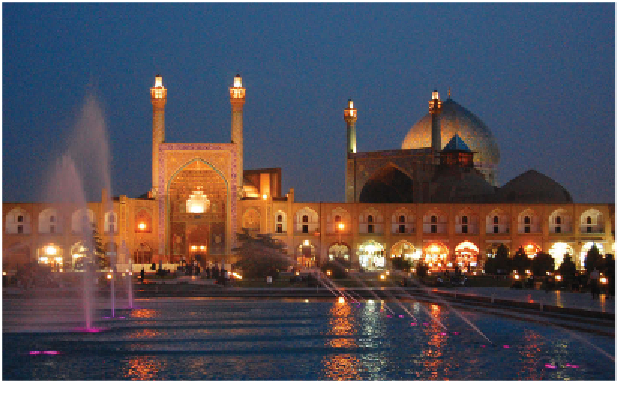Travel Reference
In-Depth Information
Esfahan's great Imam Mosque is both a tourist attraction and a vibrant place of worship.
While the Islamic Republic of Iran's constitution does not separate
mosque and state, it does allow for other religions...with provisions. I asked
Seyed if people must be religious here. He said, “In Iran, you can be whatever
religion you like, as long as it is not of ensive to Islam.” Christian? “Sure.”
Jewish? “Sure.” Bahá'i? “No. We believe Muhammad—who came in the sev-
enth century—was the last prophet. h e Bahá'i prophet, Bahá'u'lláh, came
in the 19th century. Worshipping someone who came after Muhammad is
of ensive to Muslims. h at is why the Bahá'i faith is not allowed in Iran.”
I asked, “So Christians and Jews are allowed. But what if you want to
get somewhere in the military or government?” Seyed answered, “h en you'd
better be a Muslim.” I added, “A practicing Shia Muslim?” He said, “Yes.”
Friday: Let Us Pray
Esfahan, Iran's “second city” with over 3 million people, is a showcase of ancient
Persian splendor. One of the i nest cities in Islam, and famous for its dazzling
blue-tiled domes and romantic bridges, the city is also just plain enjoyable. I'm
not surprised that in Iran, this is the number-one honeymoon destination.
Everything in Esfahan seems to radiate from the grand Imam Square,
dominated by the Imam Mosque—one of the holiest in Iran. Dating from
the early 1600s, its towering facade is as striking as the grandest cathedrals
of Europe.















































































